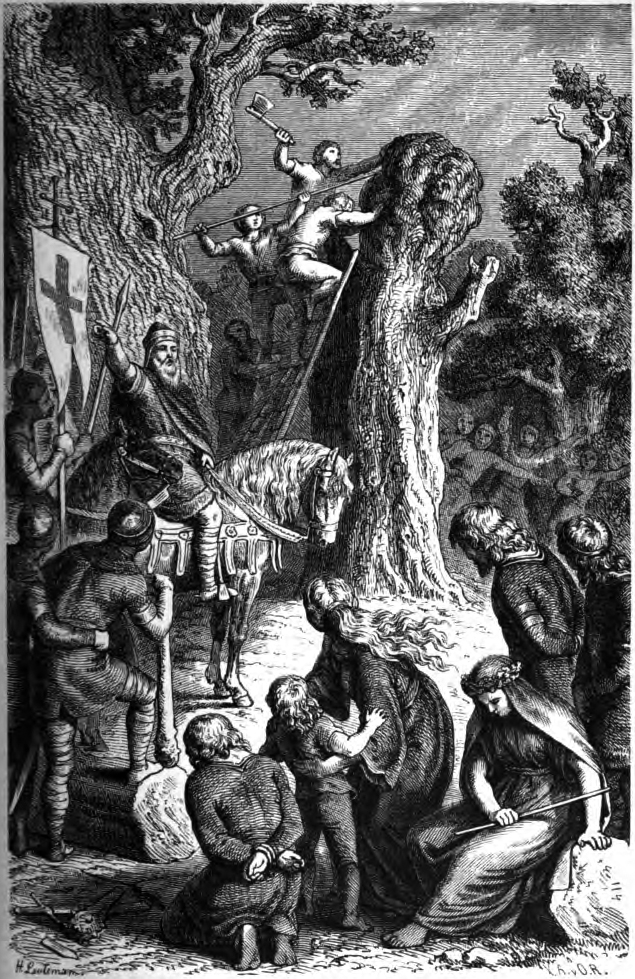One remarkable and
odd aspect of western history is the parochial myths, folk tales, and fables of the Jewish tribes recorded in the Bible displaced traditions of the peoples of Europe and became
the universal story of mankind. Well, for many western people, anyway.
 |
| The Destruction of Irminsul by Charlemagne |
This is remarkable because for all of human history, there were as many origin stories as there were tribes. There were as many
navels of the world, and as many axis mundi as there were tribes. The Bible was just one edition of this genre. If you imagine a theatrical stage where all the competing legendary patriarchs and founders of the past competed for the attention of the audience, it'd be bristling with dozens of characters like
Romulus and Remus,
Achilles,
Odysseus, or
Paris and
Priam or a
Celeus or
Demophon or
Brutus of Britain.
It's strange that the Bible's desert wandering, donkey riding cast of characters got promoted to the front and center of the stage of European religion while the rest of the characters of Northern European mythology were demoted to, at best, fictional character status or were even forgotten. Very few people today would think Odin or Zeus were historical figures, yet many people in the western world readily conflate Exodus with history and imagine that story is
our, that is, Western people's patrimony rather than an alien invasive fable.
At various times and in various places, authorities introduced new gods or created new religions to bring people of diverse backgrounds together. For example, the
Ptolomies created the cult and god
Serapis to unite Egyptian and Greek citizens. Christianity was similarly imposed on European people through a mix of
violent coercion, cross-cultural curiosity, education, and genuine fervor for new religious ideas.
It seems that Christianity adopted features of the Roman Empire as a universal religion that could be aggressively imposed. While nobody really knows how or why the feudal lords of post-Roman Europe adopted Christianity as their creed, perhaps some clues are provided by Charlemagne's reign.
 |
| Migration Period Europe |
A main problem of the feudal lords of Europe was uniting heterogeneous tribes within rather arbitrary territorial boundaries. The tribe as an extended family was an ancient institution with roots going back into the mists of time. (See this post about
the Zombie Apocalypse and de-tribing Europe) A feature of tribal life was tribal religion, which connected the people with their ancient ancestors, their rulers, and their gods. These connections had the side effect of forming political boundaries. That is the people of a region answered to their own chieftains and had their own unique opinions about what was important and what could motivate them.
 |
| Serf's Up Brah! Mow this Field with a Knife! |
Christianity, perhaps, was an obvious reagent that could dissolve those bonds and could be used to separate people from their ancient institutions and beliefs and draft them into new parasitic systems.
(I should note here that I am not nostalgic for, nor advocating a return to the tribal systems of more ancient times. There's really no reason to believe those arrangements were more rational, more just, or less oppressive than modern systems or even feudal systems.)
Hence, while many people imagine Christianity was successful in Europe owing to some specific features of the religion that made it a tonic for the people, an alternate explanation is that its success is a historic accident and its unique features were the Caesar-like ambitions and corresponding universalism of the church fathers, and Christianity's utility as a psy-op for feudal warlords.







